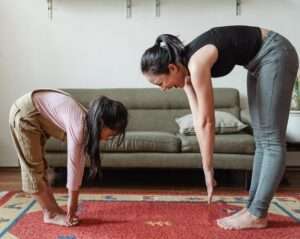Introduction: Unlocking Happiness: 8 Simple Steps to Create a Fulfilling Day
Do you frequently struggle to get through the day, feeling unproductive and unmotivated? You’re not by yourself. Many people live their lives without a clear plan or purpose, which leads to dissatisfaction and unfulfillment. However, by following these ten simple steps, you can create a day worth living and experience the happiness and fulfillment that comes with a fulfilled life. So, whether you want to increase your productivity, discover your purpose, or simply add more joy to your day, keep reading to learn how to unlock the secret to a fulfilling day.
Since it takes less than 4 minutes to read, we respectfully ask that you read the entire article, without skipping a single sentence. You never know when one of the points could completely alter your life.
1. Rise Early: The Power of Rising Early: How Waking Up Early Can Transform Your Life

Are you a morning person who has a hard time getting out of bed? Do you frequently press the snooze button before feeling drained and unproductive and rushing through the rest of the day? This is the time to evaluate the advantages of waking up early.
Early risers are more productive, have higher moods and energy levels, and even have better mental health, according to studies. In this post, we’ll look into the research supporting the advantages of rising early and offer advice on how to start waking up earlier.
you can check our article regarding things we should avoid before going to sleep
But how do you adjust to becoming an early bird? Set a regular wake-up time and adhere to it, even on the weekends. Make a gradual shift earlier each night to ensure you receive enough sleep. Before going to bed, stay away from devices since the blue light they emit can prevent your body from producing sleep chemicals.
After making the change, use the calm morning hours to concentrate on self-care, exercise, or finish critical work before the day’s distractions take over.
In short, getting up early can change your life by enhancing productivity, increasing energy, and fostering improved mental health. You may enjoy the benefits of getting up early by making a few easy adjustments to your daily routine.
2.Be thankful for what you have :The Power of Gratitude: Why Being Thankful for What You Have Can Change Your Life

It’s simple to overlook the significance of being grateful for what we already have in a society where we’re constantly being reminded of what we lack. however, research indicates that cultivating gratitude can have a significant impact on our relationships, relationships with others, and our general sense of well-being.
We’ll look at the advantages of gratitude and offer helpful advice for applying it to daily life.
How then do you begin to express gratitude? One easy option is to keep a gratitude diary in which you list three things every day for which you are grateful. Making it a habit to show gratitude to others, whether it be in the form of a handwritten note, a phone call, or a simple thank you, is another method to do it.
It’s crucial to keep in mind that being grateful doesn’t mean minimizing the struggles and problems we experience. Instead, it involves changing our attention from what we lack to what we do have. This change in perspective can make us feel happier, more resilient, and more pleased with our life.
Prayer to a higher power can undoubtedly be a method to show thanks for what we have. Many religions teach their believers to express gratitude and thanks to a superior force for all favors, large and small. By doing this, people are reminded of the positive aspects of their lives and the beneficial effects these aspects have on their well-being.
A grateful and contented attitude can be developed through prayer. We are less inclined to take our blessings for granted or become too preoccupied with what we lack when we take the time to think about what we have to be grateful for and express our thanks to a higher power.
In conclusion, practicing gratitude can alter your life by enhancing your physical and mental health, fostering closer bonds with others, and fostering a sense of well-being. Why not attempt it then? Start practicing thankfulness today to feel the impact of this straightforward but life-changing habit.
3.Make an effort to be useful: The Power of Being Useful: How Making an Effort to Help Others Can Transform Your Life

It’s simple to become preoccupied with our own lives and goals, but studies reveal that making an effort to be helpful to others can have a significant positive effect on our mental and emotional health. Helping others gives us a sense of connection, purpose, and meaning while also positively impacting their lives.
How then can you begin to try and be of use? One strategy is to look for chances to assist others in your day-to-day activities, such as offering to carry groceries for a neighbor, giving your time to a small charity, or simply grinning and saying hello to someone who seems to need a pleasant face.
It’s crucial to keep in mind that being helpful doesn’t always require great gestures or selfless deeds. Little deeds of generosity and service can make a big difference for the recipient as well as for your own sense of well-being.
In short, putting out the effort to be useful can fundamentally alter your life by enhancing your mental and emotional health, developing a sense of connection and purpose, and positively influencing the lives of others. Why not attempt it then? Find ways to assist people in your daily life and you will soon realize the power of service.
4.Sit in the sun: Soak up the Benefits: How Sitting in the Sun Can Boost Your Health and Happiness

We have a natural bond with the sun as humans. It has a significant impact on both our physical and emotional health while giving us warmth, light, and vitality. According to studies, sitting in the sun can actually offer a variety of advantages, including enhancing mood and sleep, boosting immunity, and lowering the chance of developing chronic diseases.
Let’s examine the science first. Our bodies produce vitamin D when exposed to sunlight, which is necessary for good immune system function, strong bones, and overall well-being. Our circadian cycles are regulated by sunlight, which can enhance sleep and lower the risk of mood disorders like depression.
Sitting in the sun can be beneficial for our mental and emotional health in addition to these physical advantages. Serotonin is a neurotransmitter that is important for controlling mood and lowering anxiety. It has been demonstrated that exposure to sunlight increases serotonin synthesis.
How then can you begin including time spent in the sun in your regular schedule? Spending time outdoors in the early morning or late afternoon when the sun’s rays are not as strong is one simple solution. You can also look for opportunities to enjoy other activities, such as reading or eating a meal, while sitting in the sun.
It’s crucial to keep in mind, though, that too much sun exposure can be dangerous, especially when the sun is at its strongest. Use sunscreen, hats, and other protective gear, and seek shade when necessary to reduce the risk of sunburn.
In addition to enhancing physical health, sitting in the sun can also improve mood and relieve stress. You can experience the power of this free, healthy source of energy by including time in the sun in your daily routine. So why not go outside today and enjoy the sun’s benefits?
5.Exercise, any type of exercise will do; just get moving:
Move Your Way to Health: The Benefits of Exercise and Tips for Getting Started

Everyone is aware of the health benefits of exercise, but did you know that almost any form of exercise can improve both our physical and mental well-being? Getting your body moving ,whether it’s through a brisk stroll, a yoga session, or a game of basketball—can enhance cardiovascular health, elevate mood, and even lower your chance of developing chronic diseases.
Exercise has been proven to strengthen the heart muscle and promote cardiovascular health by boosting blood flow. Also, it can increase bone density, lower the risk of fragility, and enhance all aspects of athletic performance.
Exercise has numerous physical advantages, but it can also be good for your mental health. According to studies, regular exercise can enhance cognitive function, ease mood and anxiety symptoms, and even encourage brain plasticity.
So, how do you start working out?
Finding an exercise that you enjoy and can reasonably fit into your daily schedule is key. It’s also crucial to begin gradually and build up the length and intensity of your workouts over time.
If you’ve never exercised before, start with low-impact sports like yoga, swimming, or walking. These exercises are easy on the joints and simple to adapt to your level of fitness.
If you already exercise regularly, think about pushing yourself with harder sports like weightlifting, cycling, or running. To prevent injury, make sure to warm up properly and pay attention to your body.
In short, there are many advantages to exercising, from enhancing physical health to elevating mood and lowering the risk of developing chronic diseases. You can experience the power of exercise and move your way to health by picking an activity you enjoy and progressively increasing your intensity over time. So why not start now and start moving your body?
6.Bring a smile to someone’s face:
Put a Smile on Someone’s Face: The Power of Kindness and Compassion

Did you know that smiling can have a great effect on your mood and well-being? We can all attest to how fantastic it feels to get a grin from someone else. According to studies, smiling can boost one’s immune system, lessen stress, and even make one feel happier and more optimistic.
We’ll discuss the value of smiling and offer advice on how to make someone smile, whether they be a friend, relative, or complete stranger.
The Advantages of Kindness:
It has been demonstrated that showing kindness provides a variety of advantages for the giver as well as those around them. Just a few examples of how compassion can enhance your life are as follows:
- Your mood can be elevated by kindness. Your brain releases dopamine, a neurotransmitter that can elevate your mood and make you feel happier when you carry out an act of kindness.
- Stress and anxiety can be lessened through kindness. Helping others can divert your attention from your own problems and concerns, which helps ease stress and anxiety.
- Relationships can be strengthened by kindness. When you are nice to others, you can develop your relationships with them by fostering rapport and trust.
Advice on How to Share Kindness and Compassion:
Here are some pointers to get you started if you want to make someone smile:
- Begin modestly. Making an impact doesn’t require huge gestures. Little deeds of kindness, such as holding a door open or complimenting someone, can make someone’s day much better.
- Be sincere. Be sure your acts of kindness are sincere as you carry them out. When you’re not being genuine, people can tell, and it can come across as fake.
- Seek chances to lend a hand. You just need to be open to the changes that are all around you to help others. Find opportunities to assist others, whether at work, at home, or in the neighborhood.
- Self-care is essential. Being able to assist others requires taking care of oneself. Check to see that you are getting adequate rest, eating correctly, and having time to recharge.
In essence, making someone smile can have a significant positive effect on both the recipient and the person extending the compassion. You may enhance both your own and those around you by practicing kindness and compassion on a daily basis.
7.Tell someone you appreciate them or thank them:

An effective strategy for enhancing relationships and enhancing general well-being is to express gratitude. It is crucial to express gratitude to individuals who have had a beneficial influence on our life. A simple thank-you card or a sincere discussion can go a long way toward improving both the lives of others and our own.
Why is it significant to show gratitude?
The benefits of gratitude-expressing our emotional and physical health are numerous. It encourages a sense of satisfaction and contentment by assisting us in keeping our attention on the positive aspects of our lives. According to studies, being grateful can enhance interpersonal connections, boost resiliency, and lessen stress.
Furthermore, expressing gratitude can help fortify family ties and promote a sense of community. Also, it can encourage and inspire others to keep up their good deeds and spread optimism.
How do you show gratitude?
The most effective method for expressing gratitude depends on the recipient and the nature of your relationship with them. Here are some suggestions to get you going:
- Send a letter or message of appreciation: To show someone you appreciate them, write them a handwritten note or letter. Provide particular examples of your gratitude and the effects of their acts on you.
- Have a discussion: A direct exchange of words can be a powerful means of expressing thanks. Spend some time thanking them and letting them know how their actions have affected you.
- Publicly acknowledge them: If the individual has had a substantial influence on your life, you might want to publicly thank them. You might discuss them in a blog post or during a speech.
When should one show gratitude?
It’s never too late to express gratitude. Expressing gratitude can be beneficial, whether it is done right away or years later after someone has done something nice. Yet when you show your gratitude, it’s crucial to be true and genuine.
8.Learn something new or try something different:
The Importance of Trying New Things: Learn Something New or Try Something Different Today
When we repeat the same actions, life might become monotonous. It’s simple to stay in our comfort zones, yet stepping outside of them can help us grow as people and lead more rewarding lives. Stepping outside of our comfort zones can result in new chances and experiences, whether it’s learning a new skill, taking up a new pastime, or visiting a new location.
Why is trying new things important?
We can expand our knowledge, abilities, and perspectives by trying new things. It can also aid in habit change and the emergence of fresh interests. Learning something new can increase our self-esteem and confidence, as well as make us more adaptable to change.
Also, attempting new things can result in a life that is more meaningful. As individuals, we are always changing, and attempting new things might help us figure out what genuinely brings us happiness and fulfillment. We might not have otherwise discovered new friendships, chances, and experiences as a result of it.

How can one try new things?
Although trying new things can be intimidating, there are several strategies to make it easier. Here are some pointers to get you going:
- Begin modestly: It’s not necessary to make a big effort while trying anything new. Start small by reading a book on a novel subject or trying a new meal.
- Take a class: Enroll in a course on a subject you’ve always been curious about but haven’t had a chance to research.
- Traveling to a new location can introduce you to new cultures and experiences, whether it’s a new city or a foreign country.
- Pick up a new hobby: Take up a new interest that you’ve always been fascinated about, like painting or blogging to express your ideas, you can try the google platform blogger which is simple, free, and user-friendly
When should to attempt new things?
To attempt new activities, there is no right or wrong moment. It’s never too late to pick up a new skill or make an unconventional choice. Yet, it’s crucial to maintain an open mind and be prepared to push yourself outside your comfort zone.
In summary, attempting new things can result in personal development, new opportunities, and a life that is more meaningful. Exploring the world around us and stepping outside of our comfort zones is crucial. Take the opportunity today to try something new or learn something new!
Conclusion:
If we make a conscious effort to have a productive day, happiness is within our grasp. Little daily rituals, such as practicing thankfulness and doing exercise, can have a big impact on our well-being. We may unlock happiness and build a happier life by taking good care of our physical, mental, and emotional health. Start incorporating these eight straightforward steps into your regular activities to experience the satisfaction and fulfillment that come with leading a meaningful life.

2 thoughts on “Unlocking Happiness: 8 Simple Steps To Create A Fulfilling Day”